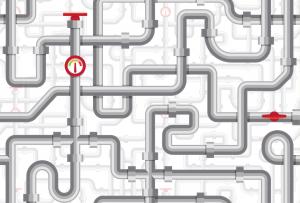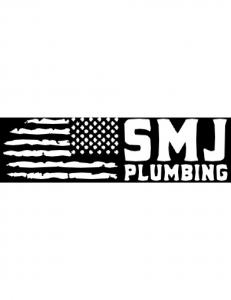The Risks Associated with DIY Plumbing Repairs and the Importance of Licensed Professional Intervention
Stephen Jordan, owner of SMJ Plumbing in Slidell, emphasizes the need for professional involvement in plumbing work. “Plumbing systems are more complex than they appear. What seems like a quick fix can lead to costly consequences when not handled correctly,” said Jordan.
One of the most common issues with DIY plumbing repairs is misdiagnosis. Plumbing systems rely on pressure balance, venting, and precise fittings. A leak, for instance, may stem from pipe corrosion, faulty joints, or shifting foundations. Without a full understanding of the system, identifying the root cause becomes difficult. Temporary fixes like tape, sealants, or over-the-counter patches may conceal the problem instead of resolving it, leading to hidden water damage and mold growth.
Incorrect installations or modifications can result in water leaks behind walls or under floors. Water seeping into structural components can damage drywall, flooring, insulation, and framing. Long-term exposure may lead to mold development, requiring remediation that far exceeds the cost of a professional plumbing repair.
Pressure issues also pose a hazard. Over-tightening fittings or installing the wrong type of valve can disrupt water pressure, causing stress on pipes. This stress may result in bursts or fractures, particularly in older plumbing systems. Conversely, under-tightened fittings may allow slow leaks that remain unnoticed until major damage has occurred.
Backflow and cross-connection hazards are another area of concern. Plumbing systems are designed to prevent the contamination of potable water supplies. Unpermitted or improperly installed components can compromise these safeguards, potentially introducing sewage or chemical contaminants into clean water lines. In regulated jurisdictions, plumbing work must comply with building codes to prevent these scenarios and protect public health.
Gas line repairs, often mistakenly treated as plumbing tasks, introduce even greater risk. Gas lines require licensed handling due to the explosion and fire hazards associated with improper installation or repair. Even small leaks from gas connections pose life-threatening dangers and must be addressed by professionals with the appropriate certifications.
Local building codes govern the installation and modification of plumbing systems to ensure health and safety. DIY repairs that do not comply with these codes may lead to fines, failed inspections, or difficulty when attempting to sell or insure a property. Licensed contractors are trained to follow code requirements and are subject to oversight that ensures proper techniques and materials are used.
Tools and materials are also a consideration. Professional plumbers use specialized tools—such as pipe threaders, inspection cameras, and pressure testers—that are rarely available to the general public. Using incorrect tools can damage fixtures, strip threads, or result in unstable connections. In some cases, proprietary parts or systems require certification to service.
One often overlooked aspect of DIY plumbing work is the impact on warranties and insurance claims. Manufacturer warranties on plumbing products frequently require licensed installation. Insurance claims resulting from water damage may be denied if the cause is linked to unlicensed or unauthorized repair work. In contrast, work performed by licensed professionals is typically backed by liability insurance and documented in a way that supports future claims or resale disclosures.
Timing and access to emergency services also play a role. Plumbing emergencies—such as burst pipes, sewer backups, or water heater failures—require immediate and informed response. Attempting to fix these issues without adequate experience can waste valuable time and increase the scope of damage. Licensed plumbers follow systematic protocols to isolate, diagnose, and repair issues efficiently.
Long-term system performance depends on precision, regulation compliance, and preventive maintenance. DIY attempts often focus on isolated symptoms rather than holistic system health. Professional plumbers perform full inspections, checking for corrosion, sediment buildup, venting issues, and code compliance. This approach identifies future risks before they become emergencies.
Stephen Jordan and the team at SMJ Plumbing continue to serve the Greater New Orleans area with an emphasis on licensed service, code adherence, and long-term system integrity. With years of field experience, SMJ Plumbing addresses both residential and commercial systems, ensuring that each repair supports safety, performance, and compliance.
Attempting to cut costs through DIY plumbing can often result in higher expenses over time. Water damage, failed inspections, voided warranties, and safety hazards all stem from well-intentioned but improperly executed repairs. Licensed professionals ensure that systems are repaired correctly, reduce the risk of future problems, and protect property investments.
Morgan Thomas
Rhino Digital, LLC
+1 504-875-5036
email us here
Visit us on social media:
Facebook
Legal Disclaimer:
EIN Presswire provides this news content "as is" without warranty of any kind. We do not accept any responsibility or liability for the accuracy, content, images, videos, licenses, completeness, legality, or reliability of the information contained in this article. If you have any complaints or copyright issues related to this article, kindly contact the author above.
BMJ Physiotherapy Expands to One@Kentridge Medical Centre Adjacent to NUH
New Book Reveals Untold Story of Royalty in America
Puraffinity and U.S. Army Corps of Engineers Partner to Advance PFAS Remediation Technologies
Kalendarium
Więcej ważnych informacji
 Jedynka Newserii
Jedynka Newserii

 Jedynka Newserii
Jedynka Newserii

Prawo

KE proponuje nowy Fundusz Konkurencyjności. Ma pobudzić inwestycje w strategiczne dla Europy technologie
W środę 16 lipca Komisja Europejska przedstawiła projekt budżetu na lata 2028–2034. Jedna z propozycji zakłada utworzenie Europejskiego Funduszu Konkurencyjności o wartości ponad 400 mld euro, który ma pobudzić inwestycje w technologie strategiczne dla jednolitego rynku. Wśród wspieranych obszarów znalazła się obronność i przestrzeń kosmiczna. Na ten cel ma trafić ponad 130 mld euro, pięciokrotnie więcej niż do tej pory.
Firma
Były prezes PGE: OZE potrzebuje wsparcia magazynów energii. To temat traktowany po macoszemu

Choć udział odnawialnych źródeł energii w miksie energetycznym Polski jest stosunkowo wysoki i rośnie, to ten przyrost jest chaotyczny i nierównomiernie rozłożony miedzy technologiami – wskazuje Forum Energii. Dodatkowo OZE potrzebują wsparcia magazynów energii, a zdaniem Wojciecha Dąbrowskiego, prezesa Fundacji SET, ten temat jest traktowany po macoszemu. Brak magazynów powoduje, że produkcja energii z OZE jest tymczasowo wyłączana, co oznacza marnowanie potencjału tych źródeł.
Infrastruktura
Wzrost wynagrodzeń ekip budowlanych najmocniej wpływa na koszty budowy domu. Zainteresowanie inwestorów mimo to nieznacznie wzrasta

Budowa metra kwadratowego domu w Polsce kosztuje od 5,55 do 6 tys. zł w zależności od województwa – wynika z najnowszych analiz firmy Sekocenbud. Najdrożej jest w Warszawie, gdzie cena za metr kwadratowy domu przekroczyła już 6,2 tys. zł. Na przyrosty kosztów budowy domu wpływają zarówno drożejące materiały budowlane, jak i wyższe wynagrodzenia pracowników. Inwestorzy nie rezygnują jednak z budowy domów jednorodzinnych, co ma związek m.in. z wciąż wysokimi cenami mieszkań czy też obniżką stóp procentowych.
Partner serwisu
Szkolenia

Akademia Newserii
Akademia Newserii to projekt, w ramach którego najlepsi polscy dziennikarze biznesowi, giełdowi oraz lifestylowi, a także szkoleniowcy z wieloletnim doświadczeniem dzielą się swoją wiedzą nt. pracy z mediami.










.gif)

 |
| |
| |
|